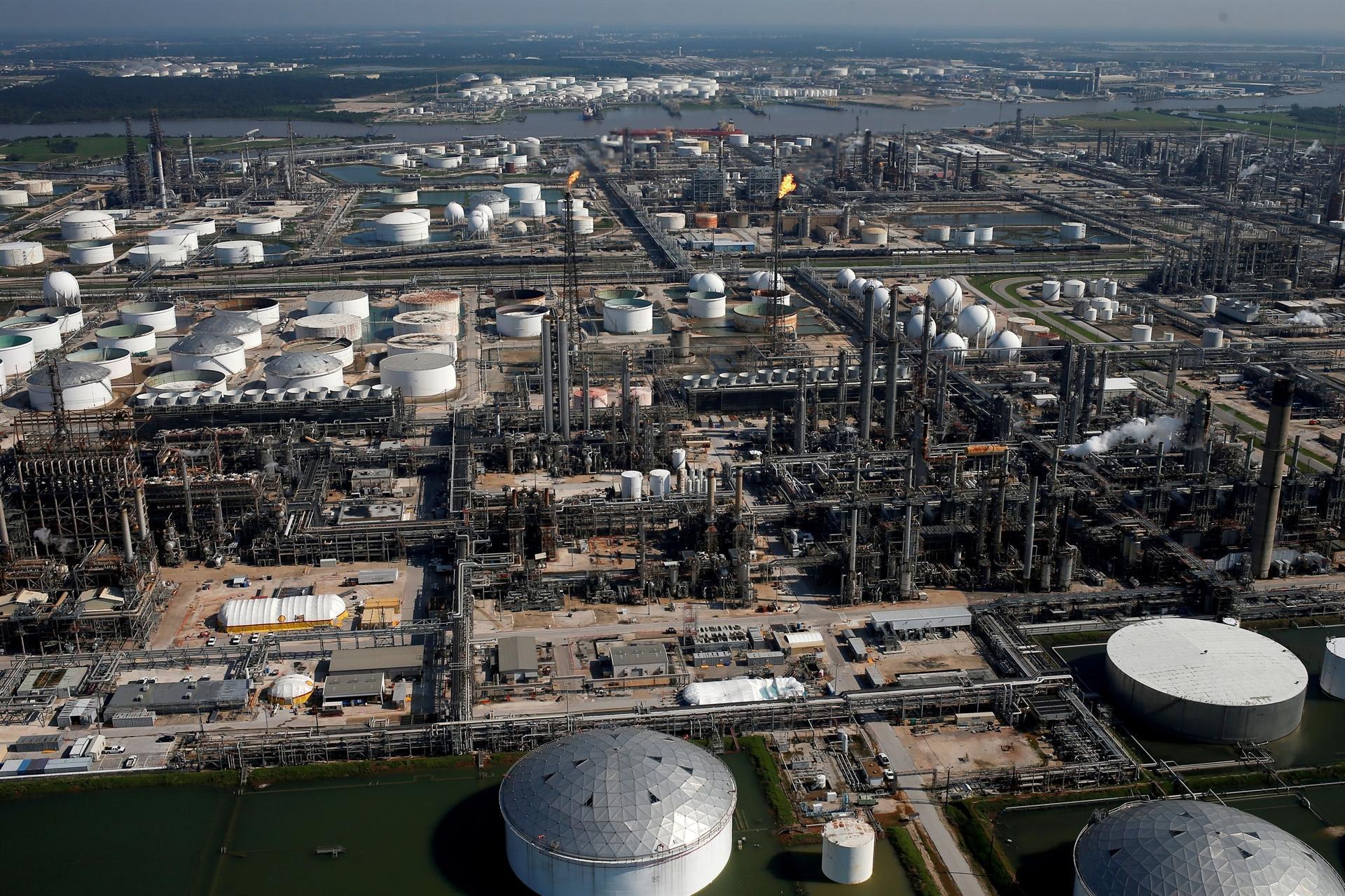
A Dutch court ordered oil giant Shell on May 26 to slash its greenhouse gas emissions in a landmark victory for climate activists with implications for energy firms worldwide.
Shell must reduce its carbon emissions by 45 percent by 2030 as it is contributing to the "dire" effects of climate change, the district court in The Hague ruled.
Campaigners hailed the "historic" verdict as the first time that a company had been made to align its policy with the 2015 Paris climate accords.
Dubbed "the People versus Shell", the case was backed by seven environmental groups and more than 17,000 Dutch citizens.
Judge Larisa Alwin said in the verdict that Anglo-Dutch multinational Shell has an "enormous CO2 emission for which it is responsible".
Shell "is contributing to the dire consequences of climate change for the population" and must implement the decision "at once".
Shell said it "fully expects to appeal today’s disappointing court decision".
"Urgent action is needed on climate change which is why we have accelerated our efforts to become a net-zero emissions energy company by 2050, in step with society," a Shell spokesman said in a statement.
With energy firms around the world facing growing pressure over climate change, Shell set new targets in February to reduce its net carbon footprint compared to a 2016 baseline by 20 percent by 2030, 45 percent by 2035 and 100 percent by 2050.
Dozens of campaigners hugged, clapped and shouted "climate justice" outside the court as the verdict was announced, an AFP reporter said.
In a show of solidarity, a group of around 50 Dutch cyclists had also cycled from the north of the Netherlands to mark the judgment.
"This is a historical day," said Donald Pols, director of the Dutch branch of Friends of the Earth, which originally brought the case.
"It’s the first time in history that the judge has decided that a large polluter, Royal Dutch Shell, should stop causing dangerous climate change," Pols told AFP outside the court.
"This will have an enormous impact, not only on Shell itself, but on major polluters throughout the Netherlands and globally."
The 2015 Paris accords committed all nations to cut carbon emissions to limit warming to two degrees Celsius (3.6 Fahrenheit) above pre-industrial levels and encouraged them to go down to 1.5 degrees.
Greenpeace Netherlands interim chief Andy Palmen said it was a "historic victory for the climate and everyone facing the consequences of the climate crisis."
"Shell cannot continue to violate human rights and put profit over people and the planet... We can hold multinational corporations worldwide accountable for the climate crisis," he said in a statement.
The case is one of a series around the world in which citizens and campaigners frustrated with inaction on climate change have hauled governments and big polluters before the courts.
Dozens of climate marchers handed in the lawsuit to Shell’s headquarters in the Netherlands in The Hague in April 2019 in what organizers said was the first case of its kind.
Shell had argued that it is making serious efforts to cut gas emissions, but that there is no legal basis for the case and that governments are responsible for meeting Paris targets.
It said it was investing billions of dollars in low-carbon energy such as electric vehicle charging, hydrogen, renewables and biofuels.
The judge acknowledged that Shell had "already tightened up its goals" but said its climate policy was "not concrete and is full of reservations."
Shell’s emissions were "greater than those of many countries" and the resulting climate change effects pose "serious risks to human rights, such as the right to life and an undisturbed family life," the judge said.
She ordered Shell to make the emissions cut based on its 2019 levels.
Campaigners have repeated the success of a case brought by the green group Urgenda in which the Dutch Supreme Court in 2019 ordered the state to slash emissions by at least 25 percent of 1990 levels by the end of 2020.
The Netherlands, particularly vulnerable to climate change as a third of the country is below sea level, has pledged to reduce CO2 emissions by 49 percent by 2030.
It is sixth biggest emitter of greenhouse gases per capita in the EU, according to the bloc’s figures.